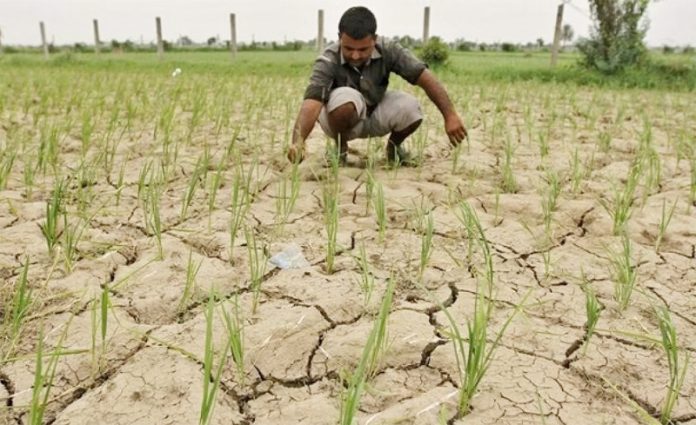Suhail Bhat
Srinagar Jan 22: The prolonged dry spell this winter is causing distress among Valley farmers, raising concerns about its severe impact on crop growth and overall productivity.
Less precipitation and above-average temperatures are anticipated to adversely affect crop growth and development, dealing a significant blow to the region’s agricultural-based economy.
Apple growers express particular concern regarding the absence of snow or rain during Chillai Kalan, a 40-day harsh winter period, emphasising its crucial role in productivity. “Inadequate soil moisture during this period can impact crop development significantly. This will impact the whole apple industry this year. The consequences can be worse than we think,” Fayaz Ahmad, president of Fruit Growers and Dealers Association Sopore, said.
Meteorological data reveals a significant rainfall deficit of 79%, with only 12.6 mm in December 2023. The region experienced a worrisome 6-degree Celsius above-normal temperatures, with Srinagar recording its highest January temperature in two decades at 15 degrees Celsius.
Streams crucial for irrigation across the Valley are running dry, leaving farmers anxious. Tufail Ahamd Boda from Shopian voicing his concerns said: “Without water, from spraying pesticides to irrigating plants, we can’t do anything. The repercussions of this dry spell would be huge and long-lasting.” He highlighted the adverse impact on high-density crops using drip irrigation, emphasising the essential need for continuous water supply.
Dr. Sameera Qayoom, a scientist at SKUAST-K, highlighted a concerning trend from the previous year, where above-normal temperatures and inadequate precipitation adversely affected agriculture. She warned of potential water scarcity for the upcoming cropping season if there is no rain or snowfall from January to April.
“The lack of snowfall negatively impacts the recharging of existing glaciers crucial for agricultural purposes, leading to water shortages in the water bodies required for irrigation,” she said.
Iqbal Chaudry, Director of Agriculture, acknowledged the unprecedented dry spell, anticipating its negative effects, especially on Rabi Season crops. He emphasised the importance of precipitation in January to mitigate the impact on crop growth and development.
Trending Now
E-Paper


